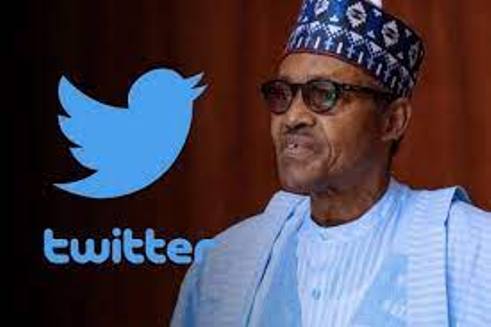Twitter Ban In Nigeria: A Real Risk To Our Democracy

LAGOS JUNE 8TH (NEWSRANGERS)-In a moment of anger and lack of critical reflection unbecoming of a democratically elected government, and with complete disregard to our rights, the Buhari Administration on June 4 announced an indefinite ban on the operations of “the microblogging and social networking service, Twitter in Nigeria.”
Segun Adeyemi, Special Assistant To The President (Media) in the office of the Minister of Information and Culture, Abuja, claimed in a terse press release that the Minister, Lai Mohammed, attributed the ban to: “The persistent use of the platform for activities that are capable of undermining Nigeria’s corporate existence”.
Mr Adeyemi stated further that the “Federal Government has also directed the National Broadcasting Commission (NBC) to immediately commence the process of licensing all OTT and social media operations in Nigeria.”
Taking a cue from the Information and Culture Minister, the Attorney General of the Federation and Minister of Justice, Abubakar Malami, also threatened that Nigerians who defy the Twitter ban would be prosecuted.
The argument advanced in Adeyemi’s press release notwithstanding, Nigerians are not oblivious of the real reason why the rash decision was taken – the taking down of President Muhammadu Buhari’s Twitter handle for tweeting what was interpreted as a threat of genocide or bloody suppression against a section of the Nigerian populace.
The president had tweeted: “Many of those misbehaving today are too young to be aware of the destruction and loss of lives that occurred during the Nigerian Civil War. Those of us in the fields for 30 months, who went through the war, will treat them in the language they understand.”
It is common knowledge that social media service providers like Twitter, Facebook, WhatsApp, among others, have well defined and widely disseminated industry standards that frown at the use of words and expressions that convey hateful messages or thoughts. Thus, with one of his tweets deleted, President Buhari has company in former President of the United States, Donald Trump, who received a similar knock when he repeatedly tweeted venomous messages against American citizens opposed to his indecorous approach to addressing governance and political issues.
Of poetic irony is the fact that one issue over which the Buhari Administration has repeatedly waxed lyrical is that of hate speech; so much that the National Assembly, controlled by his All Progressives Peoples Congress (APC), has introduced a bill to establish the National Hate Speech Commission and another one to regulate the social media. Both bills have rightly been opposed by Nigerians who feared that they would serve as witch-hunt apparatuses against those who exercise the right of dissent. Events around the Twitter ban have confirmed the fear of the civil society, media outlets and groups, professional bodies, etc., in this regard.
We condemn the ban on Twitter in Nigeria on a number of fundamental grounds.
First, the ban constitutes a gross abuse of office, as it elevates the personal interest of the President above that of the country and her citizens. The President is indeed NOT the state and disagreements over the personal terms he voluntarily entered with Twitter should not be allowed to threaten the public and national interest. Moreover, we are not aware of any law of the federation that allows the President or a Minister to whimsically deny Nigerians access to social media services of their choice.
Secondly, the ban is a grave violation of the Constitution of the Federal Republic of Nigeria, which the trio of the President, the Minister of Information and the Minister of Justice swore to uphold. By infringing citizens’ fundamental right to the freedom of expression and association, it violates section 39 of the Constitution, while undermining the social and economic rights guaranteed Nigerian citizens by Chapter 11 of the Constitution.
Thirdly, the ban is a violation of and assault on a number of international, continental and regional instruments that Nigeria willingly subscribes to. Indeed, the ban clearly falls below their expectations of the realm of the rights and freedom that citizens should freely enjoy.
Among these are the African Charter on Human and Peoples’ Rights and the Universal Declaration of Peoples and Human Rights. Pursuant to the provisions of the African Charter, Resolution 362 of 2016 of the African Commission on Human and Peoples Rights expressed concern at the practice by State Parties to the African Charter on Human and Peoples Rights, of “interrupting or limiting access to telecommunication services such as the Internet, social media and messaging services.”
In specific terms, the African Commission adopted the Declaration of Principles on Freedom of Expression and Access to Information in Africa, Principle 38 (1) and (2) of which states that, “States shall not interfere with the right of individuals to seek, receive and impart information through any means of communication and digital technologies, through measures such as the removal, blocking or filtering of content, unless such interference is justifiable and compatible with international human rights law and standards.” And that “States shall not engage in or condone any disruption of access to the internet and other digital technologies for segments of the public or an entire population.”
The UN Human Rights Council also has a subsisting resolution of July 2018 that demands the promotion, protection and enjoyment of human rights on the Internet.
Fourthly, the ban constitutes an unwarranted attack on the corporate, business and professional interests of organisations and individuals legitimately managing their affairs on Twitter, including but not limited to the media, entrepreneurs, researchers, educational institutions, NGOs and CCSOs. As at the third quarter of 2020, Twitter accounted for 61.4 per cent of Internet users in Nigeria, coming after WhatsApp and Facebook messenger, according to ‘Statista’, while ‘Quora’ estimates the number to be about seven million. Even if the number of users is considerably less, it still does not justify a ban that is jeopardising the means of business and social communication of citizens.
Fifthly, the ban further underscores the investor community’s growing concern over the unpredictability of the domestic policy environment. The consequences of a subsequent attenuation of investment for an economy whose recovery from the initial stages of the pandemic has been described as “fragile” are better imagined.
In general, only a government that wants to shut itself from its own citizens would take the kind of bizarre step of banning a social media platform. If anything, Minister Malami’s added threat of prosecuting those who circumvent or defy the ban would only invite more opprobrium for the government, both at home and abroad. This is why it is necessary to remind the Minister that the laws of the Federation do not give him such powers.
This riot of contradictions suggest that the directive to the National Broadcasting Commission (NBC) “to immediately commence the process of licensing all OTT and social media operations in Nigeria,” is nothing but an attempt to smuggle in through the backdoor, the Social Media Bill, which Nigerians have roundly rejected. Unsurprisingly, many believe that the present Twitter ban by the government is a poorly concealed dress rehearsal for the full censorship of all OTTs (including YouTube, Facebook, etc.) and social media operations in Nigeria. It is in this context that we draw attention to recent reports that the Federal Government is engaged with the Chinese authorities to build an internet firewall in Nigeria so the government can easily block any organ they want.
While we have no doubt that Nigerians will struggle and stop this creeping dictatorship, PREMIUM TIMES calls on Nigerians to rise up, contest and stop this blatant attack on our rights. No regime has succeeded in silencing the voices of Nigerians because we have not allowed it. This regime too will fail in this scandalous attempt to deprive us of our rights.
Premium Times Editorial
Short URL: https://newsrangers.com/?p=71342































